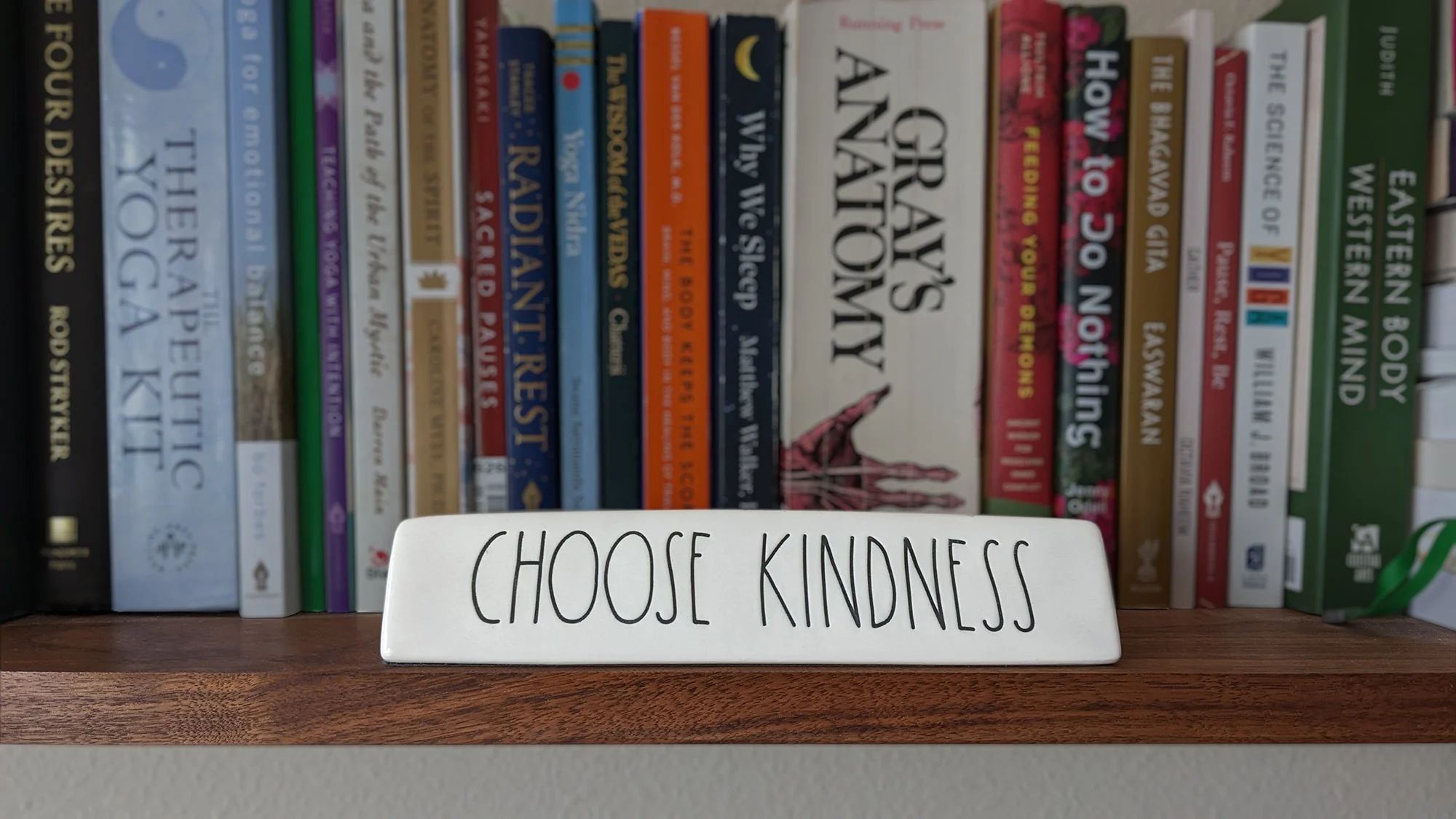Choosing kindness
/Daily Reminder, ©2022 Nicole Bratt
Hello friends,
Last week, I wrote about aparigraha, the fifth yama, as acknowledging abundance. I hope that all of you had an abundant and nourishing Thanksgiving week.
This week, I want to share some thoughts about the first yama: ahimsa – which is stated to be the most important and essential guidance. All others will fall into place when we fully embrace ahimsa.
It is the one I seem to hear about most often in yoga classes and articles. My guess is the most common translation you’ve heard is: non-harming or nonviolence.
I found a deeper dive into this concept expanded my own exploration:
“...is more than just lack of violence. It means kindness, friendliness, and thoughtful consideration of other people and things.” T. K. V. Desikachar (The Heart of Yoga)
“Respect for all beings and all things…” Bernard Bouanchaud (The Essence of Yoga)
“Embracing the great virtue of Ahimsa brings the knowledge that each of us feels pain, joy, disappointment, love—the full spectrum of emotions. We develop an empathy with others and our individual experience becomes the experience of all.” Nischala Joy Devi (The Secret Power of Yoga)
I would bet that most of us have heard the relevant quote: “Be kind; everyone you meet is fighting a battle you know nothing about.” (There is much debate about who originally said this.)
In theory, kindness is an easy practice. We all believe we are nice people, yes?! We do not look at ourselves in the mirror and say I want to go out and harm.
In practice, however, if we are honest with ourselves, it is not so easy, and can often take real effort!
There are many nuanced facets and layers of practicing ahimsa. It may be easy to be kind in some settings or situations, and not in others. We may find it easier to be compassionate to others than to ourselves. (Oh, hello, self talk!) After all, ahimsa starts with being loving and compassionate to ourselves. After a bumpy day, we might take our upset or frustration out on someone else in some way. We may take a sharp or rude tone with a loved one during a heated conversation. We may think, say, or do cruel things on occasion.
Have you been here, too? Can you think of a way in which you’ve been unkind recently to yourself or someone else?
This does not make us “bad”, of course. It simply makes us human… and always with a choice to recognize and repair harm if and when it happens.
Kindness is a choice.
And “ahimsa is a vast and continuous practice.” (Joy Devi)
I find it impossible to stay in ahimsa 24/7/365, much to my dismay. Some days, I feel spacious and a kind smile or word is effortless; others, I’m more like sandpaper; and once in awhile, I’m ignitable.
Here is what I know for certain: My practices of self-care (internal ahimsa) directly correlate to my outward kindness capacity (external ahimsa).
My own self-care practices include (but aren’t limited to): great sleep, Nature time, embodied time (ie. workouts, yoga, walks, etc), meditation, eating well, going very light on alcohol, lots of cuddle time with my cat & doggo, alone time, and as little rushing around as possible.
What are the activities and things that fill up your kindness cup?
I have a small ceramic trinket that sits above my desk on the bookshelf.
It reads “Choose Kindness”.
In thinking about the width and breadth of ahimsa as a practice – that I want to seep into everything I think/say/do – I’ve found that I actually do need that powerful, simple, daily reminder.
For the love of kindness,
Nicole

